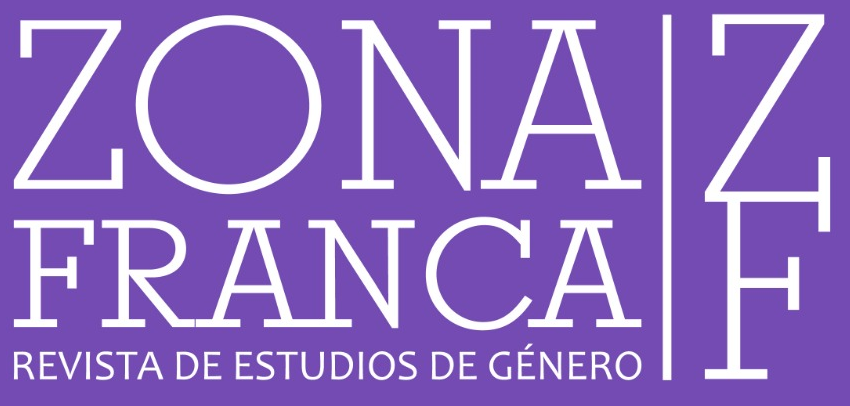Fears and shames in the scientific investigation
DOI:
https://doi.org/10.35305/zf.v0i25.42Keywords:
subjectivity- feminist autoethnography- lesbians- feelings- emotionsAbstract
My investigation flows through in the events of my life. Consequently, my daily emotions, thoughts, desires are somehow involved in my research. Nevertheless, a serious and rigorous area as science, it should not be contaminated by feelings that generate subjectivity and impartiality. All this happens when the results are important. However, since I am writing from the feminist etnography, I am not really interested in the results but in the process. The fact is that I have been also educated thinking that the important thing was “the truth” of the science. So that, when I investigate through in my intimacy and that of others –since I am trying to find out if the lesbians´couples were constructed as gender relations- I came across my emotions, so my fears and shames come up and I doubt the validity of my research.Downloads
References
ALCÁZAR, Ana; Gregorio, Carmen (2014). “Trabajo de campo en contextos racializados y sexualizados. Cuando la decolonialidad se inscribe en nuestros cuerpos”, en Gazeta de Antropología, 30.
ÁLVAREZ Veinguer, Aurora y Díez, Gunther (2014). “Etnografía colaborativa: coordenadas desde un proyecto en curso”. En Actas XVIII Congreso de Antropología. Antropología y Descolonialidad, (pp. 3447-3471)
BEHAR, Ruth (2011). “De estos que no os olvidan”. En Actas XII Congreso de Antropología. Lugares, Tiempos, Memorias. La antropología Ibérica en el Siglo XXI ,(pp.195-210)
BLANCO, Mercedes (2012). “Autoetnografía: una forma narrativa de generación de conocimiento”, en Andamios. Revista de Investigación Social, 9 (9), (pp.49-74).
CAMPS, Victoria (2011). El gobierno de las emociones, Ed. Herder, Barcelona.
DEL VALLE Murga, Teresa (2012). “El poder evocador como parte de la memoria”, en Pels camins de l’etnografia: un homenatge a joan Prat. (pp. 303-311). Barcelona: Universitat Rovira i Virgili.
ESTEBAN, Mari Luz (2004). “Antropología encarnada. Antropología desde una misma”, en Papeles del CEIC, 12, CEIC
GREGORIO Gil, Carmen (2006). “Contribuciones feministas a problemas epistemológicos de la disciplina antropológica: representación y relaciones de poder”, en AIBR. Revista de Antropología Iberoamericana, Ed. Electrónica, 1 (1) (pp.22-39) Madrid: Antropólogos Iberoamericanos en Red.
HARDING, Sandra (1996). Ciencia y feminismo, Ed. Morata, Madrid.
LAGARDE, Marcela (1990). Cautiverios de las Mujeres Madresposas, monjas, putas, presas y locas, Ed. Universidad Nacional de México, México.
MARTIN, Biddy (2002). “La práctica sexual y las identidades lésbicas en transformación”. En M. Barrett y A. Phillips, Desestabilizar la teoría. Debates feministas contemporáneos. (pp.107-131) México: UNAM.
NAROTZKY, Susana (2004). “Una historia necesaria: ética, policial y responsabilidad en la práctica antropológica”, en Relaciones 98, (pp.109-145,).
PLATERO, Raquel (Coord). (2008). Lesbianas. Discursos y representaciones, Ed. Melusina, Madrid.
SHEPER-HUGHES, Nancy (2010). “Ira en Irlanda” en Margarita del Olmo. En Dilemas éticos en antropología. Las entretelas del trabajo de campo etnográfico. Ed. Trotta.
SURRALLÉS, Alexander (2005). “Afectividad y epistemología de las ciencias humanas”, en AIBR. Revista de Antropología Iberoamericana. Numero especial nov-
TORRAS, Mery (2007). “El cuerpo del delito. De la evidencia del cuerpo al cuerpo en evidencia”. En Mery Torras (ed). Cuerpo e Identidad. (pp.11-36), Ed. UAB, Barcelona.
TRUJILLO, Gracia (2008). Deseo y Resistencia. Treinta Años de Movilización Lesbiana en el Estado Español (1977-2007). Ed. Egales, Madrid.
WITTIG, Monique (1977). El cuerpo lesbiano, Ed. Pre-Textos, Valencia.
______________(2006). Pensamiento heterosexual y otros ensayos, Ed. EGALES, Madrid.




